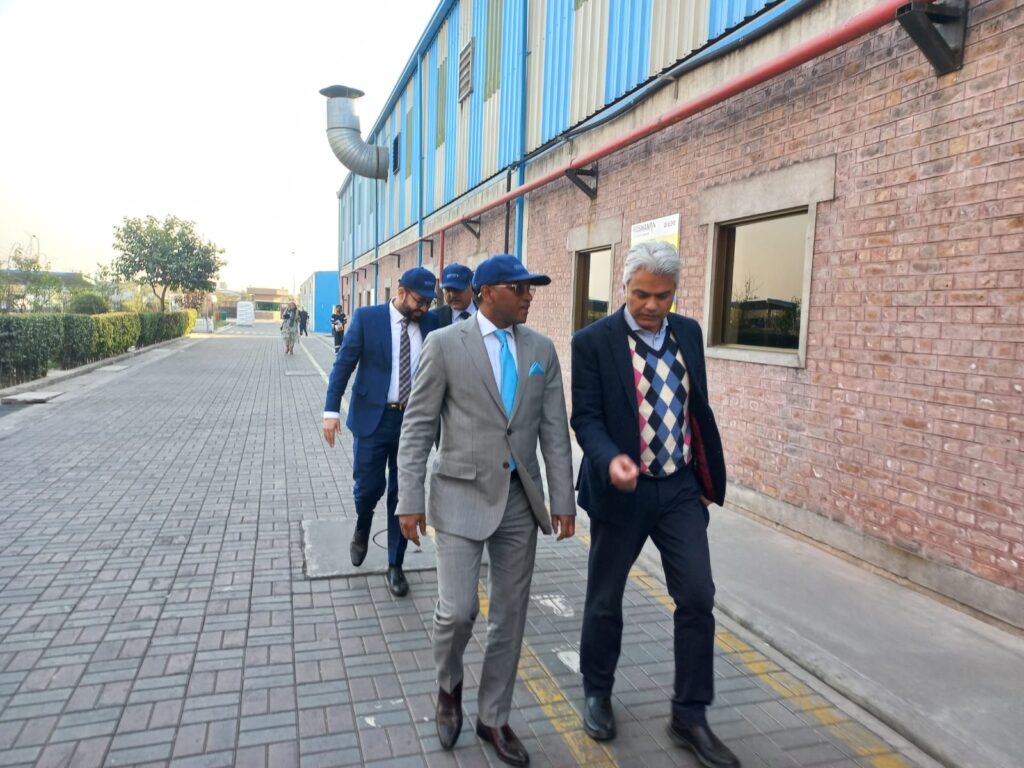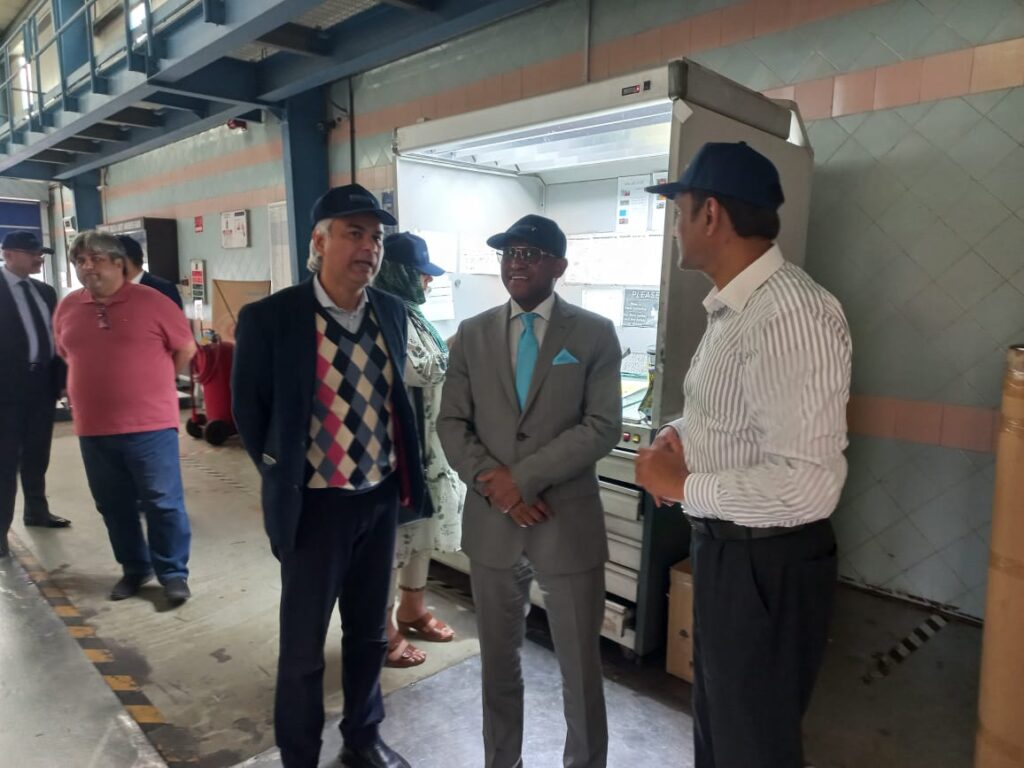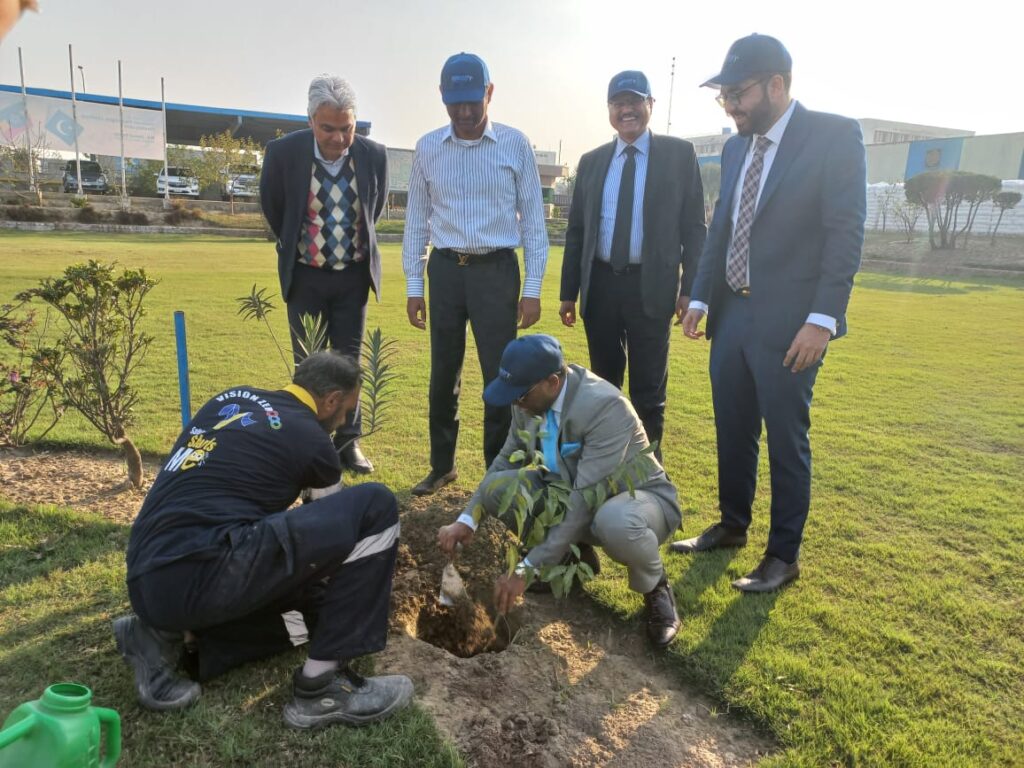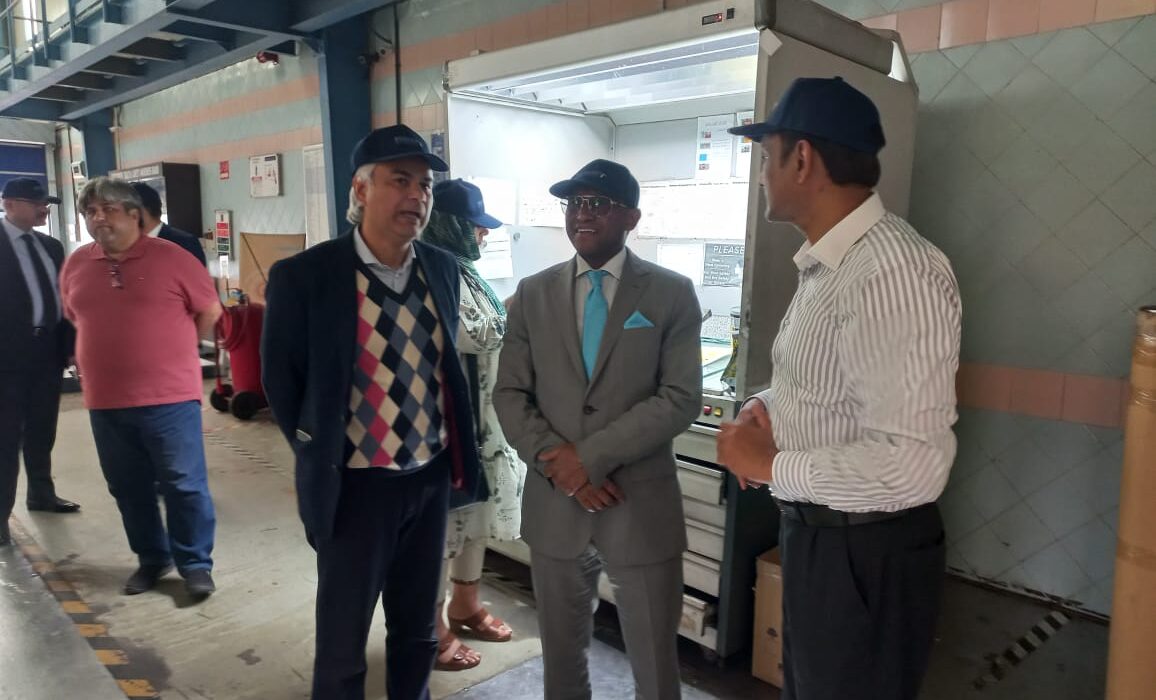Ethiopian Ambassador Sheds Light on Sustainability
We were thrilled to welcome H.E. Jemal Baker, Ambassador of Ethiopia, to Roshan Packages Limited’s Flexible Plant. During his visit, His Excellency toured the Flexible Plant and expressed his satisfaction with the safety, cleanliness, and modern machinery and met with our top management.
In recognition of the long-lasting friendship between Ethiopia and Pakistan, H.E. Jemal Baker planted a tree at the facility. The planting of the tree is not only a symbol of our commitment to sustainability, but it also reflects Ethiopia’s dedication to building a greener future.
As responsible corporate citizens, we are committed to promoting sustainable business practices and environmental stewardship. We are honored by H.E. Jemal Baker’s gesture and grateful for the opportunity to host him at our plant.
We extend our thanks to H.E. Jemal Baker for his visit, and we look forward to the opportunity to strengthen our relationship with Ethiopia and build a brighter future for all.




Situated in the Somali Peninsula also known as the Horn of Africa, Ethiopia is one of the oldest independent countries in the region. It is also the second most populated country in Africa with a population of around 120 million people. It is host to a variety of vibrant cultures and spectacular natural beauty.
Being a developing country coupled with a post-pandemic crisis, Ethiopia is also facing strong challenges like poverty, the need for development, lack of resources, and environmental degradation. However, it is weathering the storm with utmost persistence. With the peace treaty established with TPLF in the year 2022, the country is steadily making progress as a strong nation.
The Circular Economy is an emergent concept coined by Genevieve Reday and Walter Stahel in 1976 in a report by the name of ‘The Potential for Substituting Manpower for Energy” to the European Commission. It was drawn in the shape of loops to interconnect the idea of an economic model that retained materials in the product cycle for as long as possible. This concept has now gained tremendous momentum from around the world, making it a more practical alternative for linear development.
Linear development is a concept that is based on the idea of a take-use-dispose model. This model has been the root cause of the environmental degradation of our planet for decades. Ethiopia like other responsible countries is incorporating the circular economic approach in its economic activities.
It has in particular taken concrete steps to encourage the usage of sustainable packaging in recent years. In 2019, the Ethiopian government banned the usage of single-use plastics- which still is nearly half of the plastic waste generated globally. The ban comprises of the manufacture, import, and supply of single-use plastic products like luggage, straws, and cutlery.
The Private sector is also playing an active and dominant role in promoting sustainable packaging in Ethiopia. Different innovative alternative solutions are being practiced across different companies. For instance, different packaging companies have introduced biodegradable packaging, made from botanical materials. These materials are renewable with minimal to no negative environmental impacts.
Moreover, they are investing in new innovative technologies that are esthetic, contain high value, and promote resource conservation. One such technology is 3D printing. 3D printing is largely custom-made, by default designed to make packaging as per need, therefore, helping with resource conservation and waste minimization.
The general consumer trend in Ethiopia is also significantly inclined toward using sustainable practices. For instance, jute bags are a common sight there for shopping and general carrying of goods. Also, proper systems are in place to reuse materials like glass bottles. They are collected and made available for consumption in an organized way, which is a perfect example of how Ethiopian consumers and producers have incorporated product circularity into their daily lives.
The demand for green products and packaging has also increased over the years, acting as an external pressure for businesses to incorporate sustainable practices in manufacturing and operations. Balda, A., & Singh, R. In their study ‘Driving Forces towards the Adoption of Sustainable Supply Chain Management Practices: Empirical Evidence from Manufacturing Industries in Ethiopia’ highlighted that higher consumer demand for greener products is acting as a significant driver for companies in Ethiopia to adopt sustainable supply chain practices.
Ethiopia holds immense potential to immerge as a successful circular economy model. With an existing consumer and investor demand for greener products and increased investment in green practices, Ethiopia is set to become an example that other countries can follow for implementing sustainable development goals in their regions.

